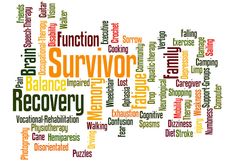Susan Wahl

I sustained a TBI as a result of a motor vehicle crash, at age seven. Almost six decades later I’m still wondering if I am experiencing residual effects of that injury.
A neurologist who specializes in movement disorders recently advised me that I’ve recovered from that my head injury and any problems I experienced from it “ended a long time ago.” The reason why I consulted this neurologist is because I’ve been experiencing dizziness and lightheadedness for three years. I am unable to walk well, cannot climb stairs more than one step at a time, have no feeling in my feet, and other issues I wish would go away. She told me all of the tests I had for a possible Parkinson’s Disease diagnosis indicates that I don’t have it, and to find a “good psychiatrist.” How much more invalidating was her “cure”? However less than a month later an osteolytic lesion appeared on one of my cervical spine vertebrae following a CT scan of my neck. I doubt that lesion had anything to do as a result of my head injury, but it was upsetting that a neurologist could be so ignorant towards me. I’m so used to the stigma of having a psychiatric history, in addition to a history of a TBI. Health care providers would rather dismiss me, as this neurologist did, rather than treat me. Fortunately I’ve been referred to a neurosurgeon who is treating me for the symptoms I’ve been experiencing rather than ignoring me. I have the support of several providers who disagree with the neurologist’s conclusion, and have stepped up on my behalf to see that I receive proper care and hopefully resolve some or all the issues I’ve been experiencing.
I know I’m far from alone in experiencing the aftermath of a severe head injury. I’ve learned the importance of advocacy for myself rather accept judgmental opinion. Hopefully others can benefit from advocacy so needed to help post-TBI survivors move on with their lives.
